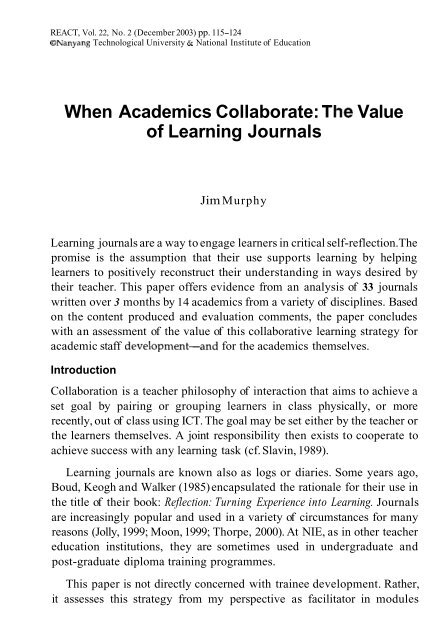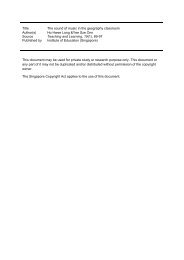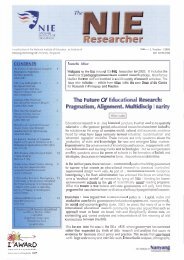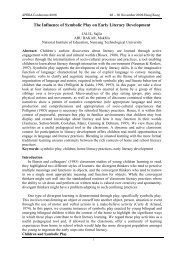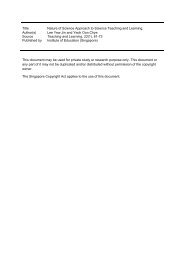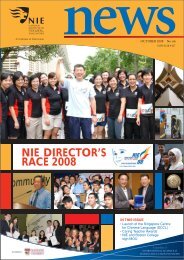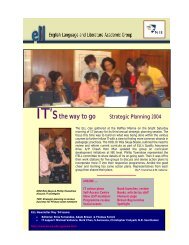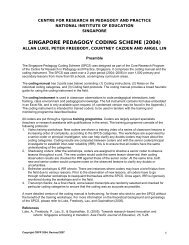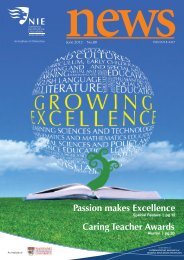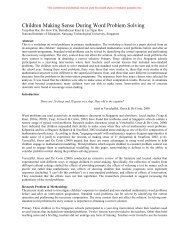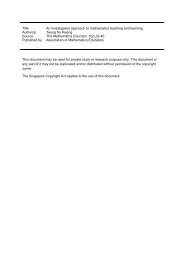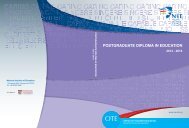Cooperative Learning - NIE Digital Repository - National Institute of ...
Cooperative Learning - NIE Digital Repository - National Institute of ...
Cooperative Learning - NIE Digital Repository - National Institute of ...
Create successful ePaper yourself
Turn your PDF publications into a flip-book with our unique Google optimized e-Paper software.
REACT, Vol. 22, No. 2 (December 2003) pp. 115-124ONanyang Technological University & <strong>National</strong> <strong>Institute</strong> <strong>of</strong> EducationWhen Academics Collaborate: Tlie Value<strong>of</strong> <strong>Learning</strong> JournalsJim Murphy<strong>Learning</strong> journals are a way to engage learners in critical self-reflection. Thepromise is the assumption that their use supports learning by helpinglearners to positively reconstruct their understanding in ways desired bytheir teacher. This paper <strong>of</strong>fers evidence from an analysis <strong>of</strong> 33 journalswritten over 3 months by 14 academics from a variety <strong>of</strong> disciplines. Basedon the content produced and evaluation comments, the paper concludeswith an assessment <strong>of</strong> the value <strong>of</strong> this collaborative learning strategy foracademic staff developn~ent-and for the academics themselves.IntroductionCollaboration is a teacher philosophy <strong>of</strong> interaction that aims to achieve aset goal by pairing or grouping learners in class physically, or morerecently, out <strong>of</strong> class using ICT. The goal may be set either by the teacher orthe learners themselves. A joint responsibility then exists to cooperate toachieve success with any learning task (cf. Slavin, 1989).<strong>Learning</strong> journals are known also as logs or diaries. Some years ago,Boud, Keogh and Walker (1985) encapsulated the rationale for their use inthe title <strong>of</strong> their book: Reflection: Turning Experience into <strong>Learning</strong>. Journalsare increasingly popular and used in a variety <strong>of</strong> circumstances for manyreasons (Jolly, 1999; Moon, 1999; Thorpe, 2000). At <strong>NIE</strong>, as in other teachereducation institutions, they are sometimes used in undergraduate andpost-graduate diploma training programmes.This paper is not directly concerned with trainee development. Rather,it assesses this strategy from my perspective as facilitator in modules


